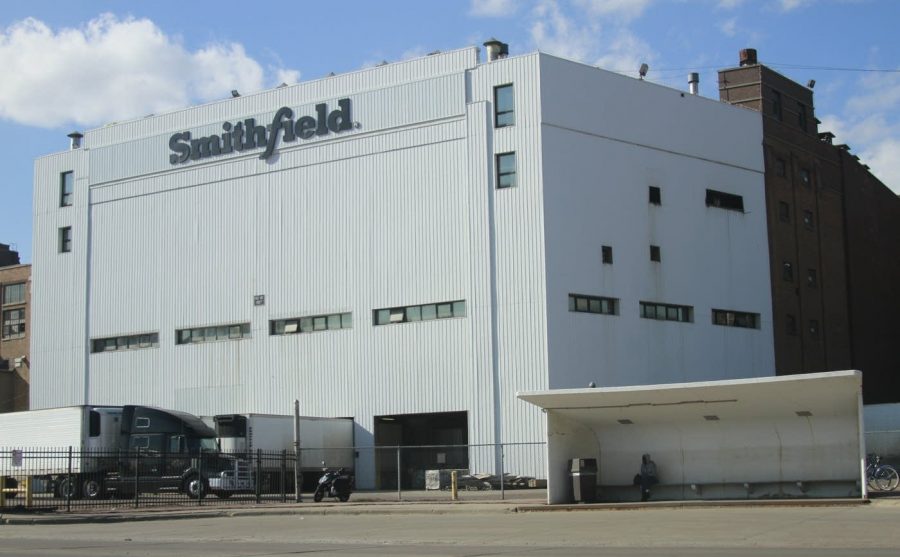COVID-19: The Meat Industry Under Siege
Stephen Groves, Associated Press
Smithfield Foods’ pork processing plant closed Sunday, due to an outbreak of COVID-19 among its workers.
April 15, 2020
On April 12th, 2020, Smithfield Foods’ pork processing plant closed due to a COVID-19 outbreak in their Sioux Falls, South Dakota, location, which was responsible for producing up to 130 million servings of food. This is equivalent to an estimated 5% of U.S. pork production. More than 230 of the 3,700 employees tested positive for the virus. Several meat plants throughout the country have reported similar issues over the past two weeks.
A division of JBS USA had also closed in Souderton, Pennsylvannia, as the plant’s management team members reported having flu-like symptoms, but is planning to reopen on April 16th. Cargill Meat Solutions closed their Hazelton, Pennsylvania plant last week after 130 workers tested positive for COVID-19.
Tyson (TSN) suspended its pork plant at Columbus Junction, Iowa, last week after a dozen workers tested positive for the virus. The company is one of the largest meat processors in the world. However, rather than turning away the livestock that was being shipped to that location, it is redirecting it to other meat processing plants.
The Smithfield processing plant had been supplied by 550 farms in the region, creating a financial issue for livestock breeders. In a letter to President Trump, Marty Smith, President of the National Cattlemen’s Beef Association, stated “the onset of COVID-19 has resulted in the steep decline of both cattle futures market and cash trade–resulting in significant financial challenges for our members.”
In the words of Christine McCracken, senior analyst of animal protein for Rabobank, the U.S. has enough meat in storage to prevent shortages. She is backed by Kerns and Associates economist, Steve Meyer, who stated that “we have a lot of pork, we have a lot of chicken, we have a lot of beef in cold storage.” If other plants follow Tyson’s lead, “they could help mitigate losses in production as well,” Meyer noted.
Despite these developments, the US Department of Agriculture has stated that there has been no evidence that COVID-19 is being transmitted through food or the packaging. For the moment, it seems that the meat lovers of America will feast for more days to come.


